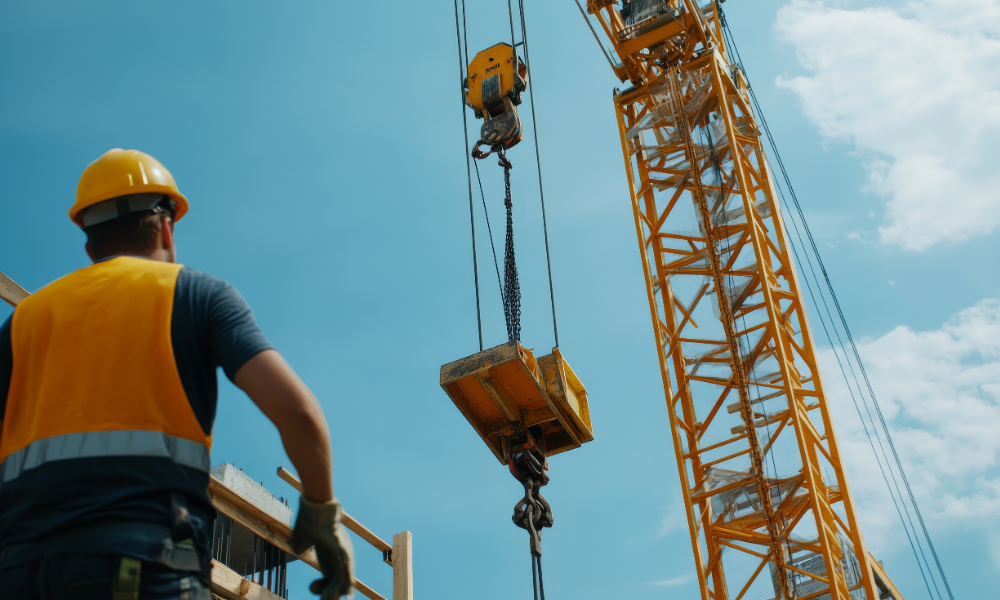Chemical plants not required to co-ordinate emergency plans with local responders
WASHINGTON (Reuters) — When disaster hits the chemical plants in Port Arthur, Texas, triggering fires like those that flared in the wake of Hurricane Harvey, Hilton Kelley is the man fielding panicked calls from neighbours unsure whether they should evacuate their homes.
Kelley, 57, is a well-respected figure in his community but is not a government or plant safety official. For 18 years, he has led a non-profit group based in Port Arthur that advises residents on air safety and dispatches a crew in emergencies, helping people to safety in more than 30 major fires or explosions.
More than 1,500 accidents at chemical plants have been reported in the United States since 2007, and amendments to the Clean Air Act issued in the last days of former President Barack Obama's administration would have forced plants handling risky chemicals to coordinate emergency plans with local responders.
Kelley says those changes would have made his job easier by, for example, obliging plant owners to tell first responders what chemicals were on site. That would help them decide what equipment and training would be needed to help people.
President Donald Trump's administration suspended the regulations, placing them in a two-year review. Trade associations argued the new rules were inconsistent with Trump's pledges to cut regulations and with his executive order issued in January requiring federal agencies to offset each new regulation with two deregulatory actions.
The full scope of the effects of the two-for-one requirement will begin to emerge in late November, when the White House is expected to publish a list of regulations and deregulatory actions each agency has taken under the rule.
A Reuters examination of rules published in the Federal Register, a U.S. government journal, shows that so far in 2017, agencies have proposed or finalized 25 deregulatory measures under the two-for-one requirement — a broad easing of rules that will affect workers from miners and farmers to pilots and crane operators.
The rollbacks will delay deadlines for farmers to comply with water quality requirements, speed up the approval process for natural gas exports, make it easier for public transportation projects to attract private financiers, and lift a rule that requires employers to disclose when they hire consultants to defeat union-organizing campaigns.
A few of these measures will have minimal effect, or were planned before Trump took office. But most of the deregulatory actions dismantle rules that took years to develop. Some former agency officials, mostly from the Obama administration, have decried the rollbacks, saying the measures being targeted were aimed at protecting the public against significant health and safety threats.
Industry groups, however, say many of the measures were onerous and unnecessary, and they are now using Trump's push to cut red tape to urge agencies to delay, modify or undo rules they have long opposed.
The Plastics Industry Association, representing nearly a thousand companies, for example, pressed for the removal of the Clean Air Act amendments, arguing that they would force companies to divulge sensitive information, such as improvements made after a plant accident, that would not help mitigate a disaster but could attract the interest of terrorists, said Marie Gargas, the association's senior technical director for regulatory affairs.
The White House's Office of Management and Budget (OMB), the agency that serves as a clearinghouse for federal regulations, did not respond to multiple requests from Reuters for comment.
But in April, Marcus Peacock, then-special adviser to OMB Director Mick Mulvaney, defended Trump's order at a roundtable event in Washington, saying, "A lot of the deregulatory actions that people will focus on first are those that simply make it easier for people to fill out paperwork or just fill out less paperwork, probably."
'SLEDGEHAMMER'
Under Trump's two-for-one-push, the Department of Labor has proposed rolling back a rule protecting workers from beryllium, an industrial metal and known carcinogen. The department said the rollback would save the shipyard and construction sectors about $11 million annually.
The Abrasive Blasting Manufacturers Alliance was among the trade groups welcoming the revocation of the rule, which would have required shipyard and construction companies to train and monitor workers to help them avoid dangerous levels of beryllium exposure. The rule "imposed complex and costly regulations on abrasive blasters, despite no evidence of any beryllium-related illness in the history of the industry," it said in a statement to Reuters.
Multiple studies by occupational health and toxic chemical experts reviewed by Reuters show that exposure to beryllium dust can lead to chronic beryllium disease, a debilitating and potentially fatal lung condition.
When the Labor Department under Obama issued the rule in 2015, it said even the legal level of beryllium exposure posed a “significant risk” of the disease. In proposing to revoke the rule in June, the agency, now under new political leadership, said there was “uncertainty” over the efficacy of such a measure.
Allen Harville, safety chairman of United Steelworkers Local 8888 in Newport News, Virginia, says he believes dozens of his colleagues have suffered from lung diseases associated with beryllium exposure. But blood tests to confirm the link cost hundreds of dollars and are not offered at most hospitals, so few can prove it, he said.
Harville said beryllium exposure isn't limited to workers: it leaves the worksite in clouds of blasting dust and the gritty coal slag that sticks to workers' clothes and skin, which risks exposing others.
The beryllium case is one example of how the deregulatory push has angered those who want more protections.
"Two-for-one is a sledgehammer that could be used to smash progress in areas they don't like," said David Friedman, who helped lead road safety and energy efficiency efforts at the Transportation and Energy departments during the Obama administration.
Public interest groups sued Trump in February over the two-for-one deregulatory requirement, arguing it arbitrarily forces agencies to repeal regulations already deemed necessary to protect consumers and workers.
Federal attorneys countered that the measure was needed to address outmoded, ineffective or overly burdensome rules.
The rollbacks reflect what experts on both sides of Washington’s political divide describe as the biggest deregulatory push by the U.S. government in a generation under Trump, who said during his presidential campaign that 70 percent of federal agency regulations could be eliminated.
COAL RULE BITES DUST
In August, the Interior Department rescinded Obama-era regulations that clarified how much oil, gas and coal companies should pay the federal government in royalties from mineral extraction on federal land. States receive a portion of those royalties.
The rule was aimed at stopping the practice of coal companies selling coal at below-market prices to their affiliated companies as a way to reduce royalty payments the companies owed, according to former Interior Department officials who worked on the rule.
Rescinding the rule could save industry between $60 million and $75 million annually, according to an economic analysis the department published in August.
But New Mexico and California could lose a combined $18 million in annual royalties that have been used to support schools in the two states, according to statements by the attorneys general of both states, who sued the department over the issue in April. Federal attorneys said the law was defective and companies struggled to comply with it.
The National Mining Association, which represents mining companies, said abolishing the rule was consistent with the two-for-one requirement. It had argued that disputes over how much coal companies should pay in royalties are increasingly rare, so the Obama-era rule was not needed.





